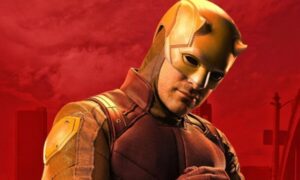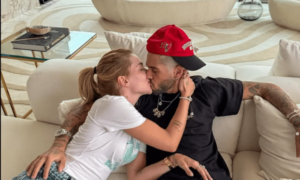The Phoenix Suns, boasting the NBA’s priciest roster, are officially out of the 2024-25 playoffs. A 125-112 loss to the Oklahoma City Thunder on Wednesday night extinguished their hopes of finishing among the top 10 in the Western Conference. Despite shelling out $220.7 million (roughly R$1.2 billion) on player salaries—the highest in league history—and hiring championship-winning coach Mike Budenholzer, the Arizona franchise failed to turn its hefty investment into on-court success. With just 35 wins in 80 games so far, this early elimination marks one of the season’s biggest disappointments.
The Suns’ erratic campaign highlights a string of challenges. While individual talents like Kevin Durant, Devin Booker, and Bradley Beal shone at times, the team struggled with inconsistency, injuries, and a lack of depth. Budenholzer, brought in to replicate his 2021 Milwaukee Bucks triumph, couldn’t craft a winning formula for his star trio. After the Thunder defeat, he acknowledged the letdown: “It hurts. It’s tough, no question. We weren’t as good as we thought we’d be.”
With two games left in the regular season, Phoenix sits in 11th place in the Western Conference, trailing the 10th-placed Dallas Mavericks, who have 38 wins. A prior 95-133 thrashing by the Golden State Warriors had already hinted at the collapse of a squad that entered the season with lofty expectations.
Billion-dollar investment, lackluster results
Mike Budenholzer arrived in Phoenix with a proven track record, but the season exposed the flaws of a team built around a handful of stars. The “Big Three” of Durant, Booker, and Beal ate up most of the $220.7 million payroll, pushing the Suns over the luxury tax threshold by more than $40 million. Yet, this massive spending didn’t translate into a balanced roster.
Bench depth proved a persistent issue. While Durant and Booker posted impressive scoring averages, the team leaned too heavily on them, leaving little room for error. Bradley Beal, acquired as a marquee name, struggled to adapt to a lesser role and battled injuries that curtailed his impact. The result was a lopsided squad unable to match the cohesion of teams like the Thunder or Warriors, who recently handed Phoenix heavy defeats.
The Suns’ financial commitment also restricted roster flexibility. With so much tied up in their top players, midseason reinforcements were nearly impossible. Rivals like Golden State and Oklahoma City showcased the value of a deep rotation and a well-oiled system, exposing the Suns’ overreliance on star power.
THE PHOENIX SUNS ALL-TIME LEADING SCORER: DEVIN BOOKER. pic.twitter.com/8tVwj6fRtz
— Phoenix Suns (@Suns) February 4, 2025
Numbers behind the flop
The Phoenix Suns’ season can be distilled into stark figures that reveal the gap between cost and performance:
- $220.7 million payroll, the NBA’s highest.
- 35 wins, 45 losses in 80 games to date.
- 11th in the Western Conference, outside the play-in.
- 38-point loss (95-133) to the Golden State Warriors, a season lowlight.
- Elimination sealed with two games still to play.
These stats underscore that money alone doesn’t guarantee wins. Touted as title contenders at the season’s start, the Suns won’t even reach the play-in, a steep fall from the hype surrounding their star-studded lineup and veteran coach.
Whispers of drastic changes ahead
As the regular season winds down, speculation swirls around the Suns’ next moves. Kevin Durant, the team’s cornerstone at 36, is widely tipped for a trade. The forward, who joined Phoenix from the Brooklyn Nets in February 2023, reportedly considered a move as early as February this year. Potential suitors include the Minnesota Timberwolves, New York Knicks, Houston Rockets, San Antonio Spurs, and Miami Heat. His departure would signal the end of an ambitious but underperforming era.
Mike Budenholzer’s job is also on the line. Despite his championship pedigree, his failure to unlock this roster’s potential has raised doubts. General manager James Jones, who assembled the team, faces similar scrutiny. The blend of sky-high spending and dismal results could spark a full overhaul in both management and personnel next season.
Fans, who dreamed of a championship run, now watch a franchise forced to regroup. The Thunder loss wasn’t just the final nail in the playoff coffin—it symbolized a season plagued by missteps and a lack of unity. The Suns’ billion-dollar experiment has become a cautionary tale of how talent and cash don’t always equal triumph.
What went wrong for the Suns
Breaking down the Suns’ collapse requires a closer look at their campaign. Chemistry between the stars never fully clicked. Kevin Durant, one of the NBA’s all-time great scorers, hit 29,000 career points in October against the Mavericks, but his heroics couldn’t lift the team. Devin Booker, who overtook Walter Davis as the franchise’s top scorer in February, dazzled in spurts, yet the lack of support around him dulled his shine.
Bradley Beal, meanwhile, couldn’t recapture his Washington Wizards form. Injuries and a tricky transition to a third-option role hampered his output. The bench—featuring Jusuf Nurkic, Grayson Allen, and Royce O’Neale—offered scant reliability, overburdening the starters. Defense, a Budenholzer hallmark, crumbled, with the Suns ranking among the league’s leakiest, as the Warriors rout painfully proved.
The season’s closing stretch crystallized their downfall. Facing must-win games against the Warriors, Thunder, Spurs, and Kings, Phoenix faltered. Losses to Golden State and Oklahoma City buried their playoff dreams, laying bare the flaws of a project that looked invincible on paper.
Defining moments of the slide
Key games punctuated the Suns’ tumble:
- A 95-133 blowout by the Golden State Warriors, one of their worst defeats.
- The 125-112 Thunder loss that mathematically ended their season.
- A January win over the Detroit Pistons, with Nick Richards debuting with a double-double, a fleeting bright spot.
- A December three-point record alongside the Utah Jazz in a regulation game, a rare highlight in a shaky year.
These snapshots, mixed with standout performances from Durant and Booker, paint a picture of a team with flashes of brilliance but no sustained momentum. The Suns showed promise but couldn’t string together the wins needed to validate their contender status.
Echoes of past NBA letdowns
The Suns’ flop isn’t unique, but their price tag sets it apart. The Philadelphia 76ers, another costly underachiever this season, share some parallels. Yet Phoenix’s $220 million payroll and pre-play-in exit make their stumble stand out. Historically, the Suns have swung between highs and lows—reaching the 2021 Finals under Monty Williams, only to fade in subsequent playoffs. Durant and Beal’s arrivals were meant to cement their rise, but instead, they regressed.
The 2013 Los Angeles Lakers, with Kobe Bryant, Dwight Howard, and Steve Nash, offer a similar tale of stars misfiring. Phoenix, though, takes the financial hit to new heights, with $205 million in luxury tax penalties. This unprecedented expenditure amplifies the sting of their failure and heaps pressure on the front office to explain it.
Where the Suns go from here
With the season all but over, Phoenix’s focus shifts to the offseason. Trading Kevin Durant looms as the biggest decision. The two-time NBA champion could chase a fresh start elsewhere, freeing up cap space and bringing draft picks lost in prior deals. Devin Booker, at 28, remains the franchise’s bedrock, his loyalty and prime years a foundation to build on—or pivot from with a new star-centric gamble.
Bradley Beal’s hefty, long-term deal poses a hurdle. His recent struggles shrink his trade value, complicating roster tweaks. Budenholzer, despite the heat, has the know-how to helm a turnaround, but he’ll need better pieces. James Jones and the front office must rethink their approach, prioritizing depth over top-heavy spending. The Suns’ title window, once wide open, now feels precarious.
Takeaways from a lost season
Reflecting on 2024-25, the Suns’ saga teaches hard truths. Raw talent, however dazzling, can’t replace team synergy. Chemistry, often overlooked, proved vital in today’s NBA, where cohesive units like the Thunder and Warriors thrive. Phoenix’s “super team” bet backfired, showing that depth and role players matter as much as stars—a lesson the Celtics and Nuggets have mastered.
For Suns fans, this bitter pill could spark renewal. The franchise, a Finals contender just three years ago, now stares down a rebuild or major retooling. The Thunder defeat, though crushing, might ignite a smarter, more balanced approach moving forward.
Key dates in the Suns’ journey
The Suns’ season featured milestones that trace their path:
- October: Durant reaches 29,000 career points vs. the Mavericks.
- December: Suns and Jazz set a three-point record in regulation.
- January: Nick Richards notches a double-double in his debut vs. Pistons.
- February: Booker passes Walter Davis as the Suns’ all-time leading scorer.
- April: Losses to Warriors and Thunder lock in their elimination.
These moments reveal a team of individual highs and collective lows, a season of promise undone by inconsistency. As the Suns limp to the finish line, the offseason looms as a chance to rewrite their story.

The Phoenix Suns, boasting the NBA’s priciest roster, are officially out of the 2024-25 playoffs. A 125-112 loss to the Oklahoma City Thunder on Wednesday night extinguished their hopes of finishing among the top 10 in the Western Conference. Despite shelling out $220.7 million (roughly R$1.2 billion) on player salaries—the highest in league history—and hiring championship-winning coach Mike Budenholzer, the Arizona franchise failed to turn its hefty investment into on-court success. With just 35 wins in 80 games so far, this early elimination marks one of the season’s biggest disappointments.
The Suns’ erratic campaign highlights a string of challenges. While individual talents like Kevin Durant, Devin Booker, and Bradley Beal shone at times, the team struggled with inconsistency, injuries, and a lack of depth. Budenholzer, brought in to replicate his 2021 Milwaukee Bucks triumph, couldn’t craft a winning formula for his star trio. After the Thunder defeat, he acknowledged the letdown: “It hurts. It’s tough, no question. We weren’t as good as we thought we’d be.”
With two games left in the regular season, Phoenix sits in 11th place in the Western Conference, trailing the 10th-placed Dallas Mavericks, who have 38 wins. A prior 95-133 thrashing by the Golden State Warriors had already hinted at the collapse of a squad that entered the season with lofty expectations.
Billion-dollar investment, lackluster results
Mike Budenholzer arrived in Phoenix with a proven track record, but the season exposed the flaws of a team built around a handful of stars. The “Big Three” of Durant, Booker, and Beal ate up most of the $220.7 million payroll, pushing the Suns over the luxury tax threshold by more than $40 million. Yet, this massive spending didn’t translate into a balanced roster.
Bench depth proved a persistent issue. While Durant and Booker posted impressive scoring averages, the team leaned too heavily on them, leaving little room for error. Bradley Beal, acquired as a marquee name, struggled to adapt to a lesser role and battled injuries that curtailed his impact. The result was a lopsided squad unable to match the cohesion of teams like the Thunder or Warriors, who recently handed Phoenix heavy defeats.
The Suns’ financial commitment also restricted roster flexibility. With so much tied up in their top players, midseason reinforcements were nearly impossible. Rivals like Golden State and Oklahoma City showcased the value of a deep rotation and a well-oiled system, exposing the Suns’ overreliance on star power.
THE PHOENIX SUNS ALL-TIME LEADING SCORER: DEVIN BOOKER. pic.twitter.com/8tVwj6fRtz
— Phoenix Suns (@Suns) February 4, 2025
Numbers behind the flop
The Phoenix Suns’ season can be distilled into stark figures that reveal the gap between cost and performance:
- $220.7 million payroll, the NBA’s highest.
- 35 wins, 45 losses in 80 games to date.
- 11th in the Western Conference, outside the play-in.
- 38-point loss (95-133) to the Golden State Warriors, a season lowlight.
- Elimination sealed with two games still to play.
These stats underscore that money alone doesn’t guarantee wins. Touted as title contenders at the season’s start, the Suns won’t even reach the play-in, a steep fall from the hype surrounding their star-studded lineup and veteran coach.
Whispers of drastic changes ahead
As the regular season winds down, speculation swirls around the Suns’ next moves. Kevin Durant, the team’s cornerstone at 36, is widely tipped for a trade. The forward, who joined Phoenix from the Brooklyn Nets in February 2023, reportedly considered a move as early as February this year. Potential suitors include the Minnesota Timberwolves, New York Knicks, Houston Rockets, San Antonio Spurs, and Miami Heat. His departure would signal the end of an ambitious but underperforming era.
Mike Budenholzer’s job is also on the line. Despite his championship pedigree, his failure to unlock this roster’s potential has raised doubts. General manager James Jones, who assembled the team, faces similar scrutiny. The blend of sky-high spending and dismal results could spark a full overhaul in both management and personnel next season.
Fans, who dreamed of a championship run, now watch a franchise forced to regroup. The Thunder loss wasn’t just the final nail in the playoff coffin—it symbolized a season plagued by missteps and a lack of unity. The Suns’ billion-dollar experiment has become a cautionary tale of how talent and cash don’t always equal triumph.
What went wrong for the Suns
Breaking down the Suns’ collapse requires a closer look at their campaign. Chemistry between the stars never fully clicked. Kevin Durant, one of the NBA’s all-time great scorers, hit 29,000 career points in October against the Mavericks, but his heroics couldn’t lift the team. Devin Booker, who overtook Walter Davis as the franchise’s top scorer in February, dazzled in spurts, yet the lack of support around him dulled his shine.
Bradley Beal, meanwhile, couldn’t recapture his Washington Wizards form. Injuries and a tricky transition to a third-option role hampered his output. The bench—featuring Jusuf Nurkic, Grayson Allen, and Royce O’Neale—offered scant reliability, overburdening the starters. Defense, a Budenholzer hallmark, crumbled, with the Suns ranking among the league’s leakiest, as the Warriors rout painfully proved.
The season’s closing stretch crystallized their downfall. Facing must-win games against the Warriors, Thunder, Spurs, and Kings, Phoenix faltered. Losses to Golden State and Oklahoma City buried their playoff dreams, laying bare the flaws of a project that looked invincible on paper.
Defining moments of the slide
Key games punctuated the Suns’ tumble:
- A 95-133 blowout by the Golden State Warriors, one of their worst defeats.
- The 125-112 Thunder loss that mathematically ended their season.
- A January win over the Detroit Pistons, with Nick Richards debuting with a double-double, a fleeting bright spot.
- A December three-point record alongside the Utah Jazz in a regulation game, a rare highlight in a shaky year.
These snapshots, mixed with standout performances from Durant and Booker, paint a picture of a team with flashes of brilliance but no sustained momentum. The Suns showed promise but couldn’t string together the wins needed to validate their contender status.
Echoes of past NBA letdowns
The Suns’ flop isn’t unique, but their price tag sets it apart. The Philadelphia 76ers, another costly underachiever this season, share some parallels. Yet Phoenix’s $220 million payroll and pre-play-in exit make their stumble stand out. Historically, the Suns have swung between highs and lows—reaching the 2021 Finals under Monty Williams, only to fade in subsequent playoffs. Durant and Beal’s arrivals were meant to cement their rise, but instead, they regressed.
The 2013 Los Angeles Lakers, with Kobe Bryant, Dwight Howard, and Steve Nash, offer a similar tale of stars misfiring. Phoenix, though, takes the financial hit to new heights, with $205 million in luxury tax penalties. This unprecedented expenditure amplifies the sting of their failure and heaps pressure on the front office to explain it.
Where the Suns go from here
With the season all but over, Phoenix’s focus shifts to the offseason. Trading Kevin Durant looms as the biggest decision. The two-time NBA champion could chase a fresh start elsewhere, freeing up cap space and bringing draft picks lost in prior deals. Devin Booker, at 28, remains the franchise’s bedrock, his loyalty and prime years a foundation to build on—or pivot from with a new star-centric gamble.
Bradley Beal’s hefty, long-term deal poses a hurdle. His recent struggles shrink his trade value, complicating roster tweaks. Budenholzer, despite the heat, has the know-how to helm a turnaround, but he’ll need better pieces. James Jones and the front office must rethink their approach, prioritizing depth over top-heavy spending. The Suns’ title window, once wide open, now feels precarious.
Takeaways from a lost season
Reflecting on 2024-25, the Suns’ saga teaches hard truths. Raw talent, however dazzling, can’t replace team synergy. Chemistry, often overlooked, proved vital in today’s NBA, where cohesive units like the Thunder and Warriors thrive. Phoenix’s “super team” bet backfired, showing that depth and role players matter as much as stars—a lesson the Celtics and Nuggets have mastered.
For Suns fans, this bitter pill could spark renewal. The franchise, a Finals contender just three years ago, now stares down a rebuild or major retooling. The Thunder defeat, though crushing, might ignite a smarter, more balanced approach moving forward.
Key dates in the Suns’ journey
The Suns’ season featured milestones that trace their path:
- October: Durant reaches 29,000 career points vs. the Mavericks.
- December: Suns and Jazz set a three-point record in regulation.
- January: Nick Richards notches a double-double in his debut vs. Pistons.
- February: Booker passes Walter Davis as the Suns’ all-time leading scorer.
- April: Losses to Warriors and Thunder lock in their elimination.
These moments reveal a team of individual highs and collective lows, a season of promise undone by inconsistency. As the Suns limp to the finish line, the offseason looms as a chance to rewrite their story.







